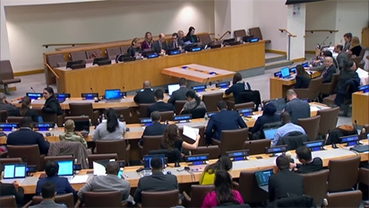The United Nations, in a new resolution that adds to those adopted in recent months to promote the social and solidarity economy, advocates 2025 be declared the International Year of Co-operatives, the second after the successful one in 2012.This was approved on November 3 by the Third Committee of the UN General Assembly – responsible for social, humanitarian, and cultural affairs – in proposal A/C.3/78/L.11.
The resolution calls for the proclamation of another International Year of Cooperatives in 2025 and encourages all Member States, as well as the United Nations and all interested institutions, to seize the International Year to promote cooperatives and raise awareness of their contribution to the implementation of the Sustainable Development Goals (SDGs) and overall social and economic development.
It also encourages all Member States to share best cooperative practices and to engage in consultations with cooperatives in preparation for the high-level political forum on sustainable development.
The resolution is based on the Secretary-General’s report on cooperatives in social development, published late last summer. In the report, the UN Secretary-General, Antonio Guterres, applauds how cooperatives promote sustainable development in its three dimensions and, in this context, recommends that governments help cooperatives become “vibrant businesses” by employing an ecosystem-based business approach and continuing to strengthen their capabilities to collect comprehensive and internationally comparable data on the role of cooperatives in development.
The new resolution urges States to examine existing legislation and policies to make the national legal and regulatory environment more conducive to the creation and growth of cooperatives, improving existing laws and regulations or enacting new ones, especially regarding access to capital, autonomy, competitiveness, and fair taxation.
The resolution also addresses support for cooperatives worldwide in areas such as access to information and communication technologies, the development and dissemination of empirical research on the functioning and contribution of cooperatives, the promotion of gender equality and women’s empowerment, and the inclusion of cooperative values, principles, and business models in educational programs, including curricula.
The International Cooperative Alliance has expressed satisfaction with the approval of this new UN resolution, “which is raising great expectations in the cooperative movement worldwide.”
According to the President of the ICA, Ariel Guarco, “the proclamation of a new International Year of Cooperatives 13 years after the first one demonstrates the firm recognition by the UN and national governments of the ability of cooperatives to drive the Agenda 2030 and build a fairer and more prosperous world for all.”
The recommendations of this new UN resolution are well aligned with the ICA’s requests to governments according to its recent document on “Cooperatives: Key Partners in Achieving the 2030 Agenda for Sustainable Development.”







